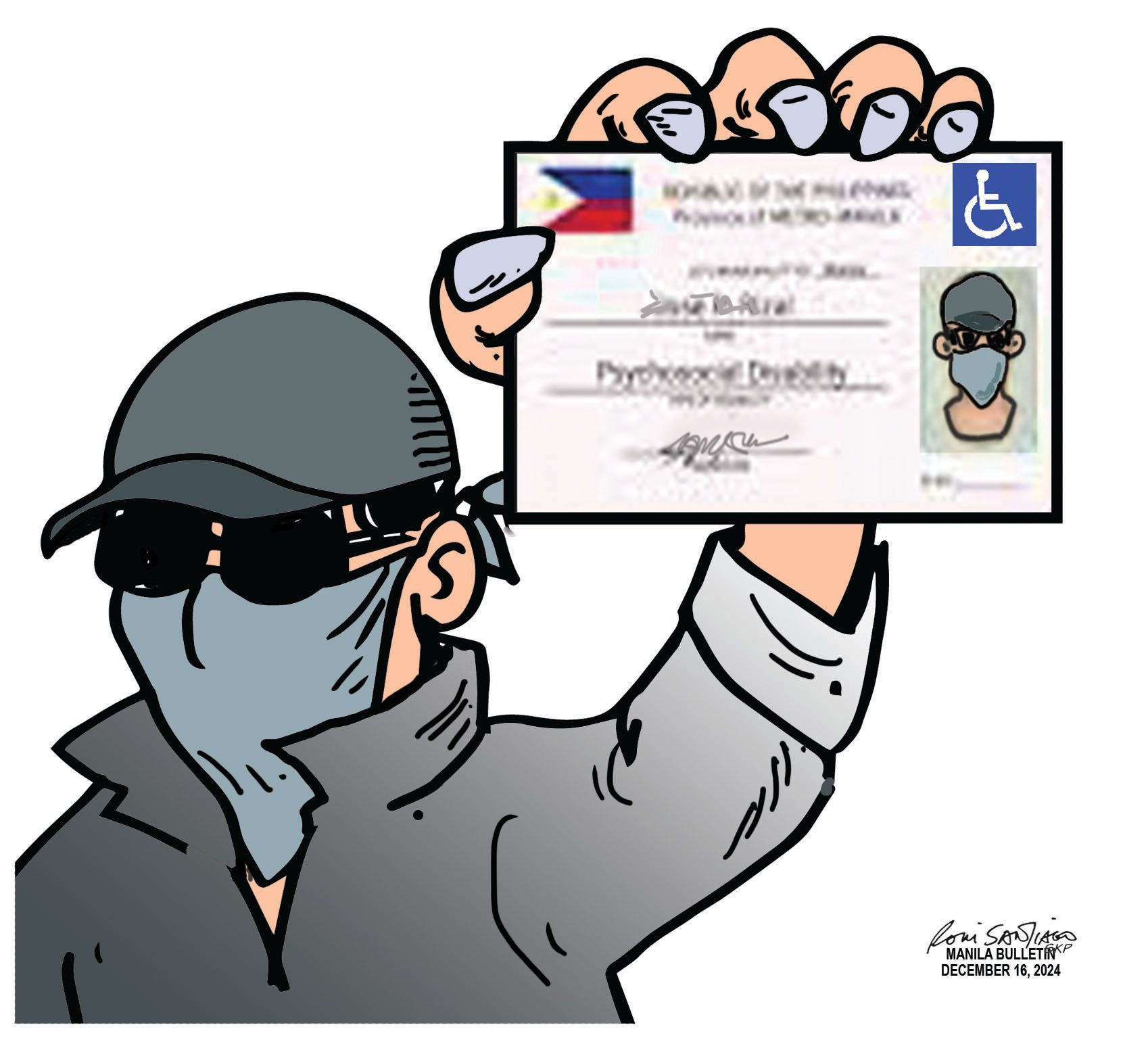
The discovery of widespread use of fake Person with Disability (PWD) identification cards reveals a troubling culture of dishonesty that has far-reaching consequences for the government, businesses, and, most significantly, the PWD community itself.
In a Senate hearing investigating the tax leakages caused by the proliferation of fake PWD IDs, it was estimated that this has caused revenue losses of about ₱88.2 billion in 2023. It is clear that this issue is not just an ethical concern but an economic and social one, as well.
Republic Act (R.A.) No. 7277, as amended by R.A. No. 10754, provides PWDs with a 20-percent discount and exemption from Value-Added Tax (VAT) on specific goods and services.
The fraudulent use of PWD IDs robs the government of significant revenue that could otherwise fund essential programs, including those intended to benefit PWDs. The staggering revenue loss, attributed to an estimated 8.54 million fraudulent users compared to just 1.89 million registered PWDs with the National Council on Disability Affairs.
The problem undermines the very purpose of Republic Act 10754. This act, designed to expand benefits for PWDs, inadvertently becomes a loophole for abuse, costing both the state and honest taxpayers.
Businesses, particularly small and medium enterprises, bear the brunt of this dishonesty. Restaurant owners, for instance, report a surge in sales to purported PWDs—from five percent to 30 percent in recent years. These discounts, while intended to support PWDs, are increasingly being exploited, forcing establishments to absorb losses. A restaurant owners group had reported many cases where entire families present discount cards — two with senior citizen IDs, and the rest, including a nanny, showing PWD IDs. Sadly, this shows a complete disregard for honesty within the family.
The root of the problem lies in the issuance and verification of PWD IDs. Many local government units (LGUs) still rely on easily replicated cardboard IDs, which are being sold on social media platforms like Facebook from ₱500 to ₱2,500, some even boasting a “Class A” copy.
Bacolod City’s initiative to include QR codes in PWD IDs offers a promising solution. This system allows establishments to instantly verify the legitimacy of a card, creating a deterrent against counterfeiting.
The success of Bacolod should serve as a model for a national system. A centralized database, accessible to both LGUs and businesses, would standardize PWD ID issuance and simplify verification.
At the heart of this issue is a moral failing. Those who exploit fake PWD IDs not only cheat the system but also diminish the resources available to genuine PWDs, who already face numerous challenges in accessing healthcare, employment, and education. Such actions betray a deep-seated disregard for the welfare of others and the principle of equity that underpins these benefits.
Similarly, the complicity of individuals selling fake IDs highlights a lack of accountability. For a few thousand pesos, they perpetuate a cycle of fraud that affects millions. This calls for stricter penalties, as Sen. Sherwin Gatchalian has suggested, to deter both the creation and use of counterfeit IDs.
Addressing this issue requires a multifaceted approach: adopting robust technology, standardizing ID issuance, increasing penalties for fraud, and fostering a culture of integrity. The government must act decisively, not only to recover lost revenues but also to uphold the rights of legitimate PWDs.
The use of fake PWD IDs is more than a minor offense—it is an attack on fairness, integrity, and the law. Only through collective honesty and vigilance can we restore trust and ensure that resources reach those who truly need them.